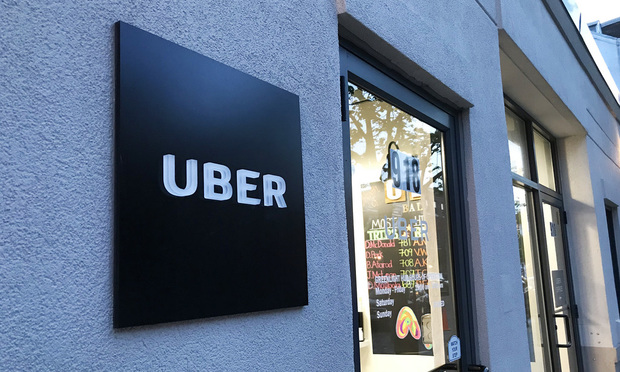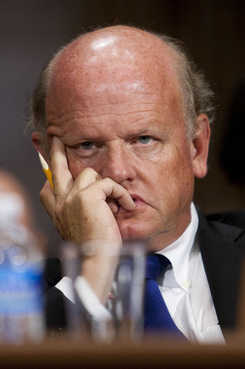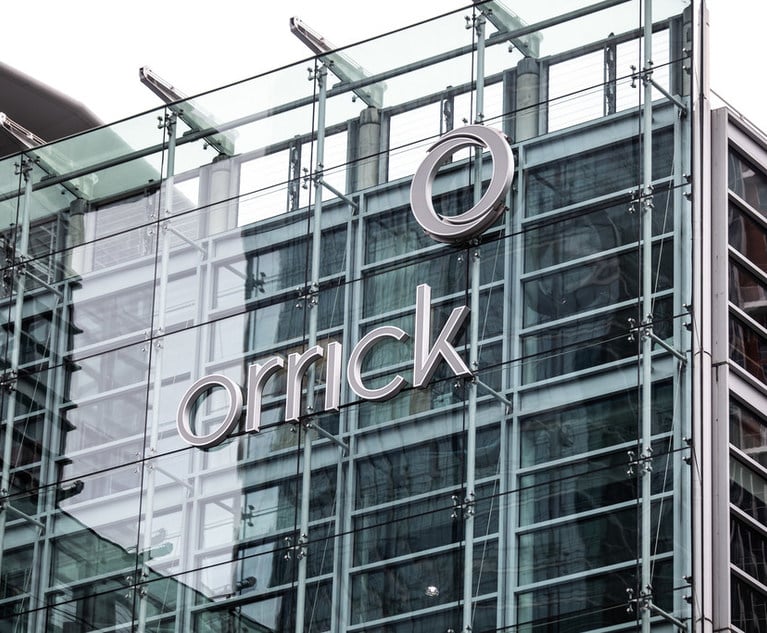Ninth Circuit Revives US Chamber's Challenge to Seattle Ride-Hailing Union Law
“Digital platforms like Uber and Lyft have become 'highly interconnected with modern economic and social life,' and present novel challenges and contexts for regulation,” the Ninth Circuit panel said.
May 11, 2018 at 12:37 PM
5 minute read
 An Uber office in Baltimore. Credit: Diego M. Radzinschi/ ALM
An Uber office in Baltimore. Credit: Diego M. Radzinschi/ ALM
Updated at 2:13 p.m. PST
A federal appeals court on Friday revived a challenge to a Seattle law that would allow ride-hailing drivers to unionize, sending the first-of-its-kind local ordinance back to a lower court.
The U.S. Court of Appeals for the Ninth Circuit's ruling Friday for the U.S. Chamber of Commerce and Uber Technologies will put more scrutiny over the viability of local laws designed to provide some labor protections to workers in the gig economy.
The appeals panel concluded the Seattle law violated federal antitrust provisions because the ordinance sanctioned price-fixing in the ride-sharing services industry. The Ninth Circuit partly agreed with the trial judge in finding that the ordinance did not violate the National Labor Relations Act.
Lawyers from Jones Day represented the Chamber, and Altshuler Berzon and the Seattle city attorney's office divided time for the city.
The three-judge appeals panel argued “the crux of this case” was a provision of the Seattle ordinance that permits independent contractor drivers, represented by an “exclusive driver representative,” to agree on the “nature and amount of payments to be made by, or withheld from, the driver coordinator to or by the drivers.”
The panel—Circuit Judges Milan Smith and Mary Murguia and Eduardo Robreno, a trial judge sitting by designation—acknowledged that the arrival of companies such as Uber and Lyft presented novel legal questions amid labor schemes adopted years earlier.
“The very concept of digital ridesharing services was probably well beyond the imaginations of lawmakers two to three decades ago, much less foreseeable. But the fact that technology has advanced leaps and bounds beyond the contemplation of the state legislature is not, on its own, the dispositive factor in our holding today,” Smith wrote. “Digital platforms like Uber and Lyft have become 'highly interconnected with modern economic and social life,' and present novel challenges and contexts for regulation.”
Regardless, the panel said it could not broaden or extend state immunity to “anti-competitive activity which the states did not intend to sanction.”
Seattle has acknowledged the ordinance was intended as a novel case, testing the bounds of how far local government could go in providing benefits for workers within the gig economy.
Ride-hailing operators in Seattle and elsewhere embrace independent contractor business models that provide driver flexibility but eschew traditional benefits accorded to employees, such as the right to bargain, receive workers' compensation and other benefits.
 Michael Carvin. Credit: Diego M. Radzinschi / ALM
Michael Carvin. Credit: Diego M. Radzinschi / ALMThe outcome of the Seattle case could have sweeping consequences for local governments and companies grappling with the growing gig sector. The federal government, several states and a host of advocates on both sides offered their perspective for how to harmonize modern technology and labor laws.
The Ninth Circuit panel heard arguments in February, after the ordinance was temporarily blocked by a lower court. Jones Day partner Michael Carvin in Washington argued as the lead attorney on the team for the U.S. Chamber. A team from Davis Wright Tremaine, represented Uber in the case. Stacey Leyton of the civil rights firm Altshuler Berzon argued for the city of Seattle with Michael Ryan, an assistant city attorney.
Carvin directed a response to the ruling to a Chamber representative.
“The Chamber brought this lawsuit because allowing every city or town to create its own unionization scheme would have burdened innovation, increased prices, killed jobs, and harmed consumers,” a Chamber spokesperson said in a statement. “We are pleased that the Ninth Circuit rejected Seattle's attempt to immunize its harmful ordinance from federal antitrust law.”
Dan Nolte, a spokesperson for Seattle, said in a statement: ”The court reiterated that federal law does not cover independent contractors, and that state and local governments are free to regulate their labor relations in the manner they deem most appropriate.” He added: “The court did not consider or comment upon the merits of the U.S. Chamber of Commerce's federal antitrust claims, and instead remanded the case to the district court so that court could consider the antitrust claims in the first instance.”
Nolte said the city is “evaluating its next steps consistent with its commitment to protecting worker rights.”
The Federal Trade Commission and the Justice Department weighed in on the Seattle case in a friend-of-the court brief on the side of the U.S. Chamber and Uber.
“Competition is the lynchpin of the U.S. economy. Although states can displace competition with regulation, they must clearly articulate their intent to do so,” Acting FTC chairman Maureen Ohlhausen said in November. “Because Seattle's action exceeded its authority from the state, the state action defense should be rejected.”
Read more:
2 New Suits Challenge Gig Worker Classification, And This Is Just the Beginning
Three Takeaways From the California Supreme Court's Gig Economy Ruling
Calif. Supremes Embrace Worker-Friendly Classification Test. Why This Matters to Gig Companies
Seattle's Push to Let Gig Drivers Unionize Faces Fresh Test in Ninth Circuit
This content has been archived. It is available through our partners, LexisNexis® and Bloomberg Law.
To view this content, please continue to their sites.
Not a Lexis Subscriber?
Subscribe Now
Not a Bloomberg Law Subscriber?
Subscribe Now
NOT FOR REPRINT
© 2025 ALM Global, LLC, All Rights Reserved. Request academic re-use from www.copyright.com. All other uses, submit a request to [email protected]. For more information visit Asset & Logo Licensing.
You Might Like
View All
Orrick Picks Up 13-Lawyer Tech, VC Group From Gunderson Dettmer

On The Move: Squire Patton Boggs, Akerman Among Four Firms Adding Atlanta Partners
7 minute read

Judge Grills DOJ on Trump’s Birthright Citizenship Executive Order
Trending Stories
- 1How Clean Is the Clean Slate Act?
- 2Florida Bar Sues Miami Attorney for Frivolous Lawsuits
- 3Donald Trump Serves Only De Facto and Not De Jure: A Status That Voids His Acts Usurping the Power of Congress or the Courts
- 4Georgia Hacker Pleads Guilty in SEC X Account Scam That Moved Markets
- 5Trump's Pick for SEC Chair Likely to Stymie Shareholder Proposals from ESG Advocates
Who Got The Work
J. Brugh Lower of Gibbons has entered an appearance for industrial equipment supplier Devco Corporation in a pending trademark infringement lawsuit. The suit, accusing the defendant of selling knock-off Graco products, was filed Dec. 18 in New Jersey District Court by Rivkin Radler on behalf of Graco Inc. and Graco Minnesota. The case, assigned to U.S. District Judge Zahid N. Quraishi, is 3:24-cv-11294, Graco Inc. et al v. Devco Corporation.
Who Got The Work
Rebecca Maller-Stein and Kent A. Yalowitz of Arnold & Porter Kaye Scholer have entered their appearances for Hanaco Venture Capital and its executives, Lior Prosor and David Frankel, in a pending securities lawsuit. The action, filed on Dec. 24 in New York Southern District Court by Zell, Aron & Co. on behalf of Goldeneye Advisors, accuses the defendants of negligently and fraudulently managing the plaintiff's $1 million investment. The case, assigned to U.S. District Judge Vernon S. Broderick, is 1:24-cv-09918, Goldeneye Advisors, LLC v. Hanaco Venture Capital, Ltd. et al.
Who Got The Work
Attorneys from A&O Shearman has stepped in as defense counsel for Toronto-Dominion Bank and other defendants in a pending securities class action. The suit, filed Dec. 11 in New York Southern District Court by Bleichmar Fonti & Auld, accuses the defendants of concealing the bank's 'pervasive' deficiencies in regards to its compliance with the Bank Secrecy Act and the quality of its anti-money laundering controls. The case, assigned to U.S. District Judge Arun Subramanian, is 1:24-cv-09445, Gonzalez v. The Toronto-Dominion Bank et al.
Who Got The Work
Crown Castle International, a Pennsylvania company providing shared communications infrastructure, has turned to Luke D. Wolf of Gordon Rees Scully Mansukhani to fend off a pending breach-of-contract lawsuit. The court action, filed Nov. 25 in Michigan Eastern District Court by Hooper Hathaway PC on behalf of The Town Residences LLC, accuses Crown Castle of failing to transfer approximately $30,000 in utility payments from T-Mobile in breach of a roof-top lease and assignment agreement. The case, assigned to U.S. District Judge Susan K. Declercq, is 2:24-cv-13131, The Town Residences LLC v. T-Mobile US, Inc. et al.
Who Got The Work
Wilfred P. Coronato and Daniel M. Schwartz of McCarter & English have stepped in as defense counsel to Electrolux Home Products Inc. in a pending product liability lawsuit. The court action, filed Nov. 26 in New York Eastern District Court by Poulos Lopiccolo PC and Nagel Rice LLP on behalf of David Stern, alleges that the defendant's refrigerators’ drawers and shelving repeatedly break and fall apart within months after purchase. The case, assigned to U.S. District Judge Joan M. Azrack, is 2:24-cv-08204, Stern v. Electrolux Home Products, Inc.
Featured Firms
Law Offices of Gary Martin Hays & Associates, P.C.
(470) 294-1674
Law Offices of Mark E. Salomone
(857) 444-6468
Smith & Hassler
(713) 739-1250






